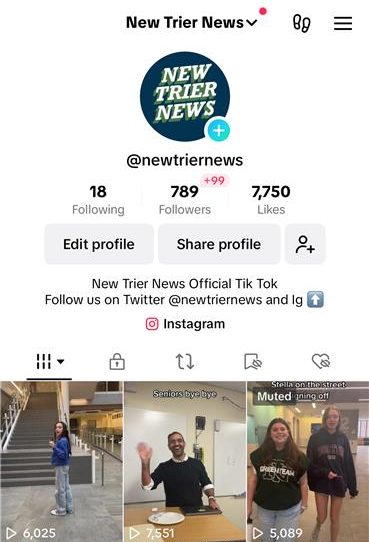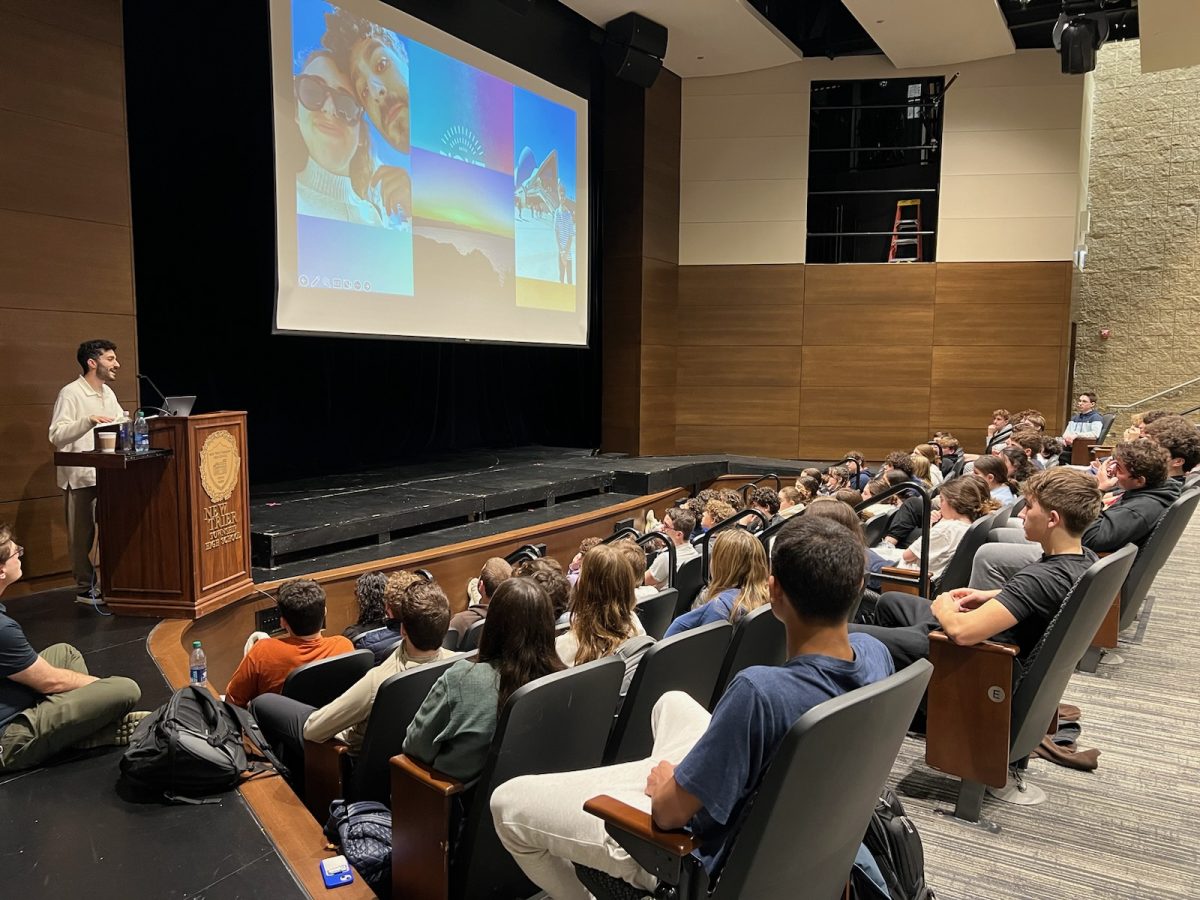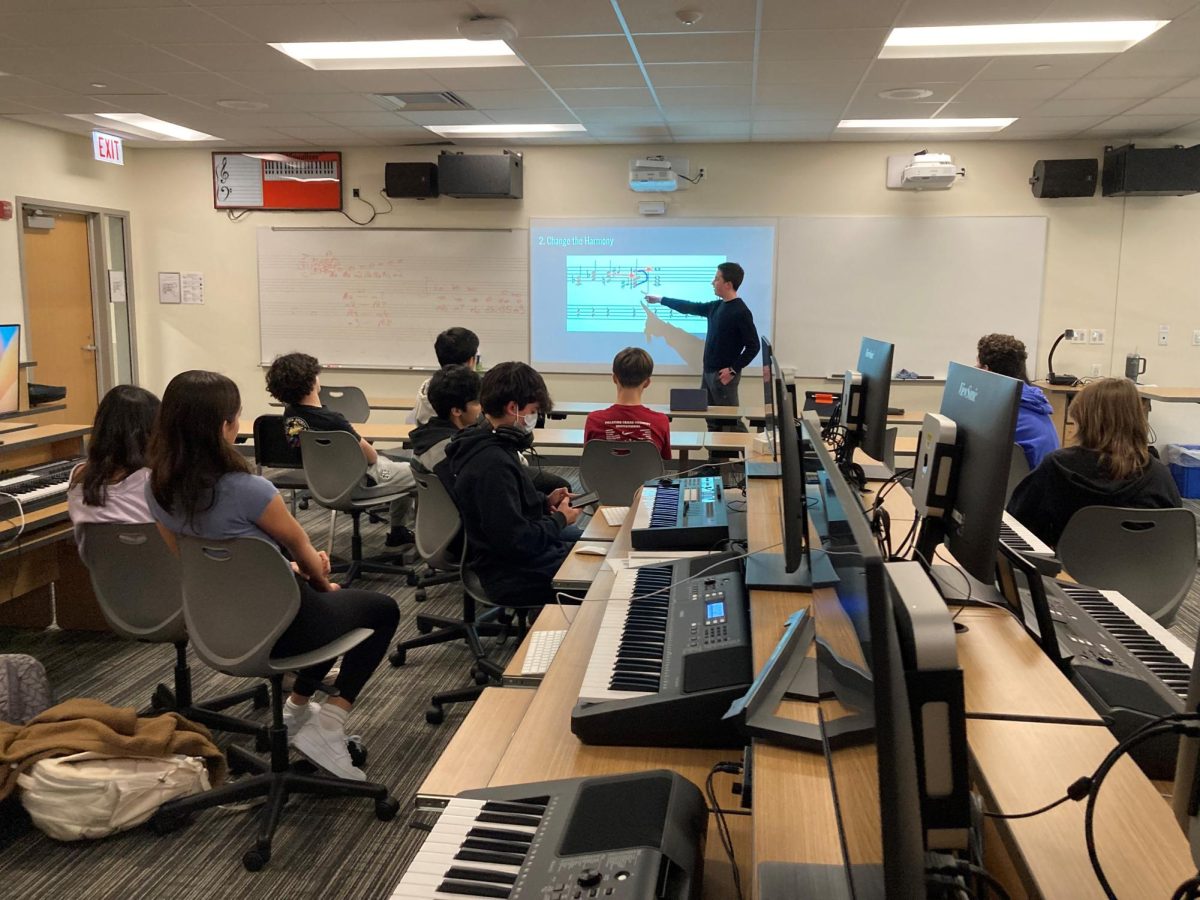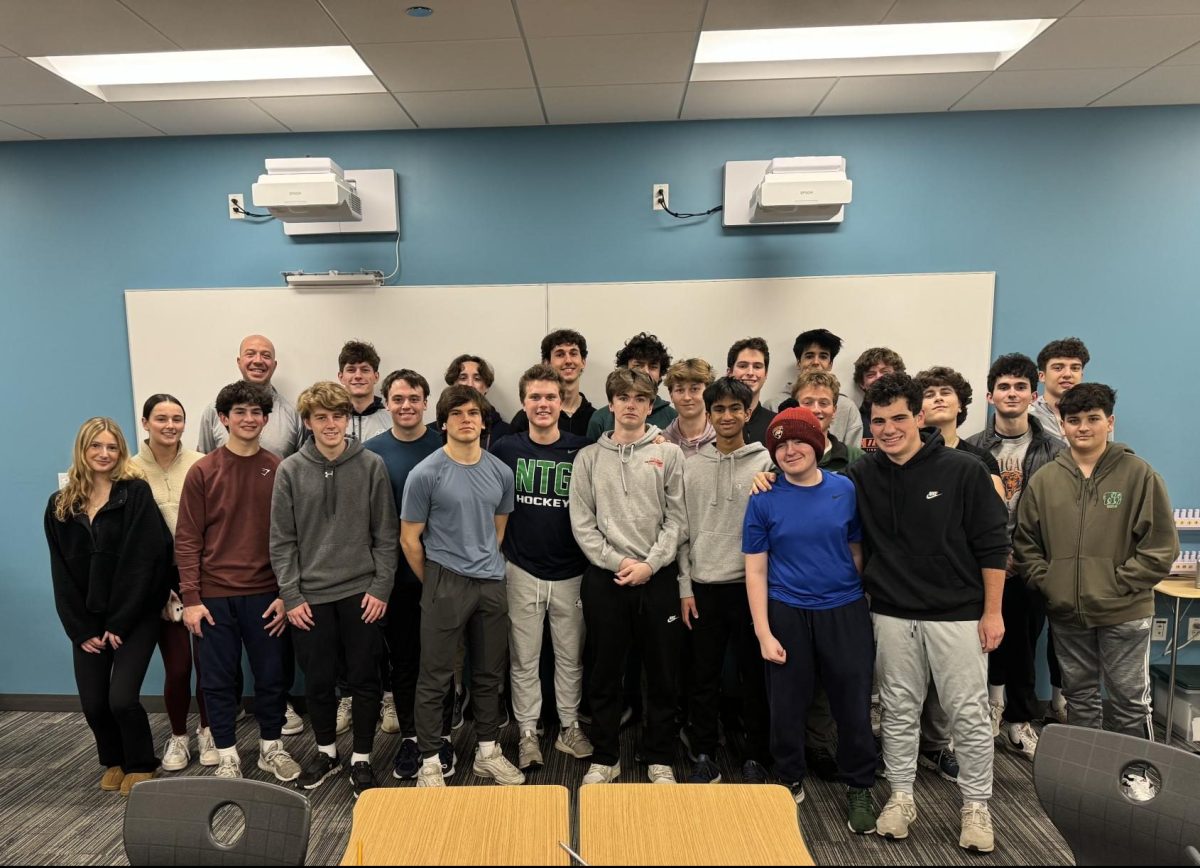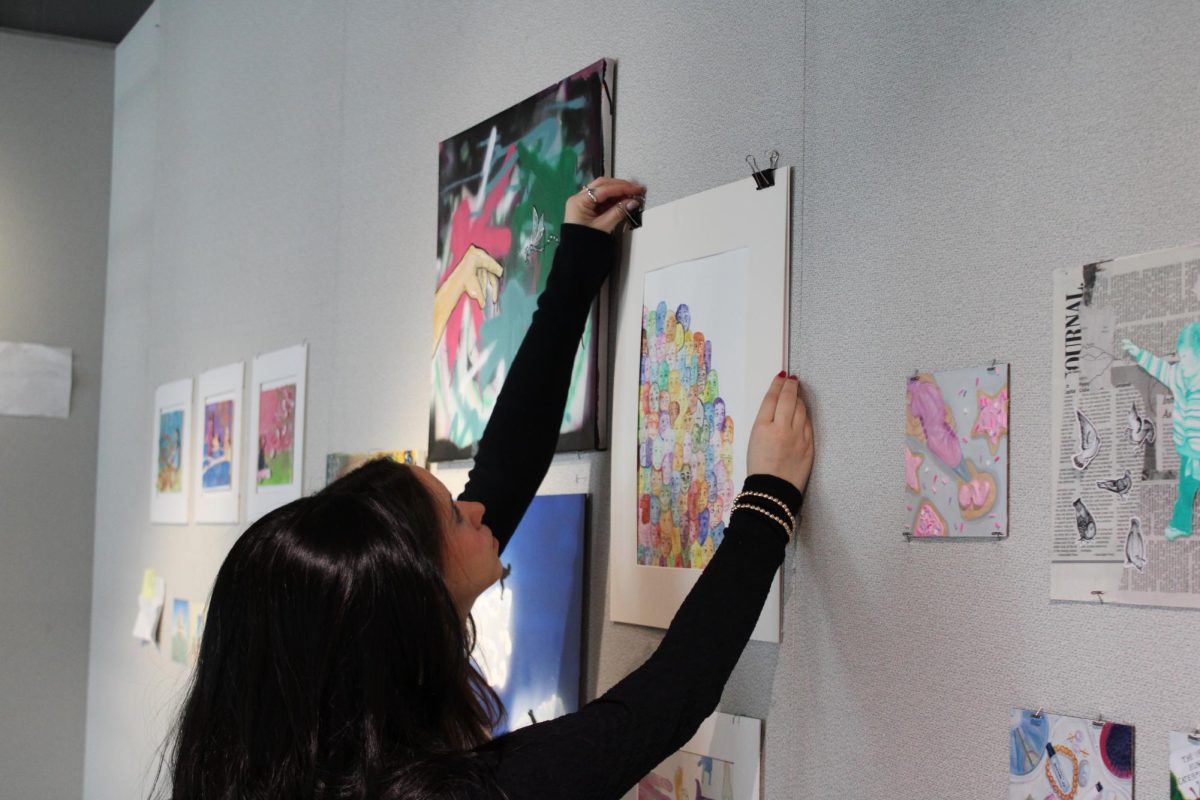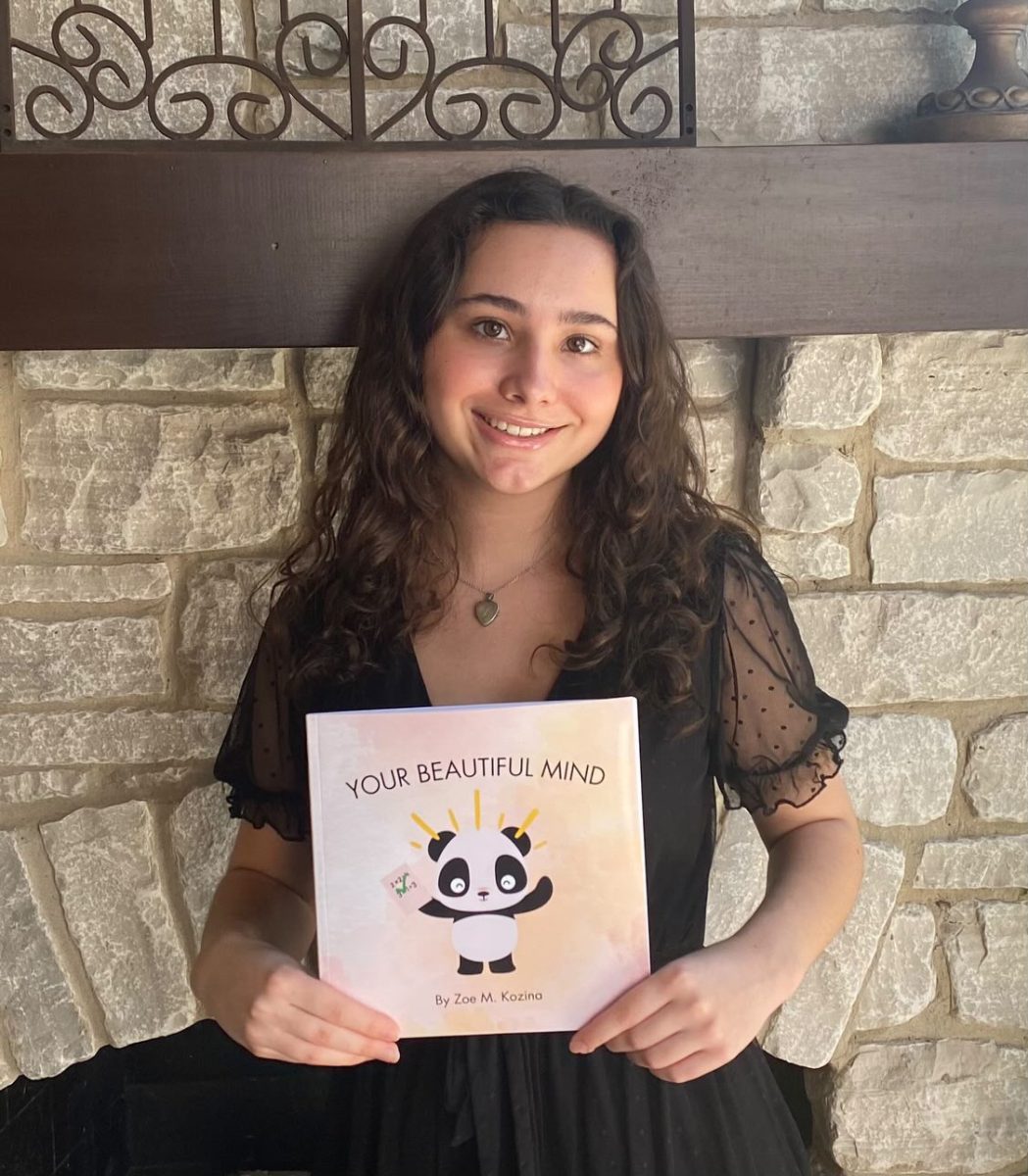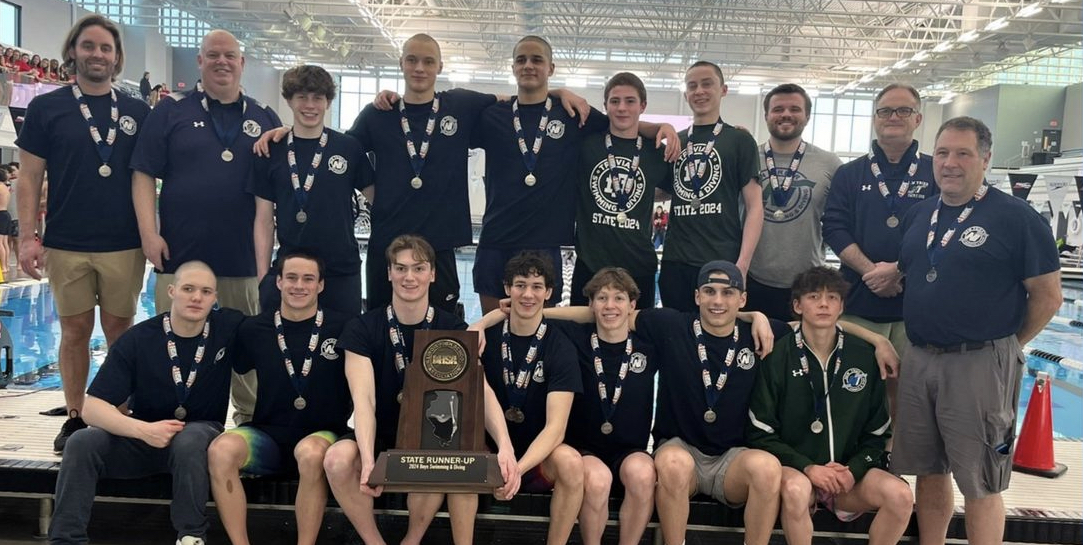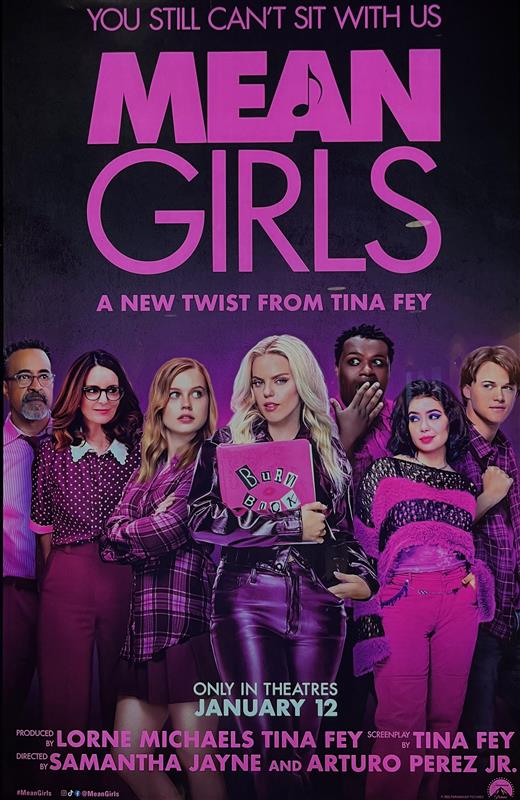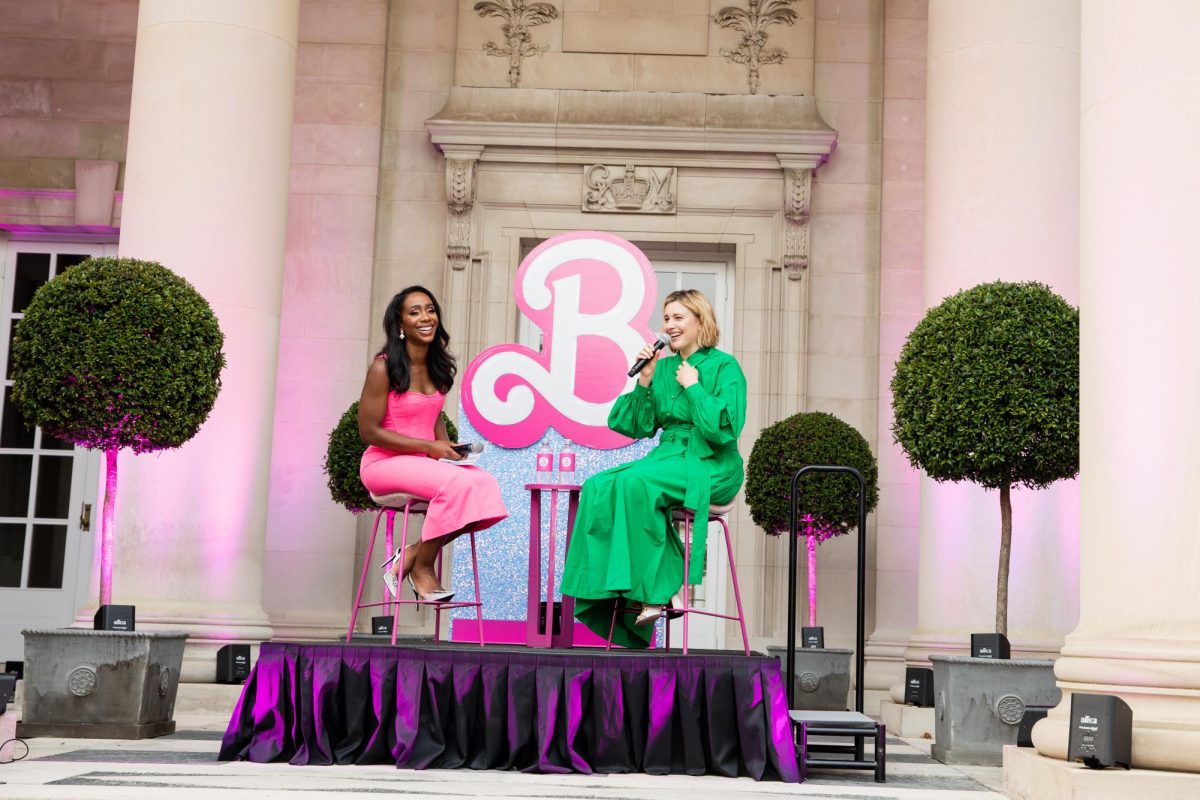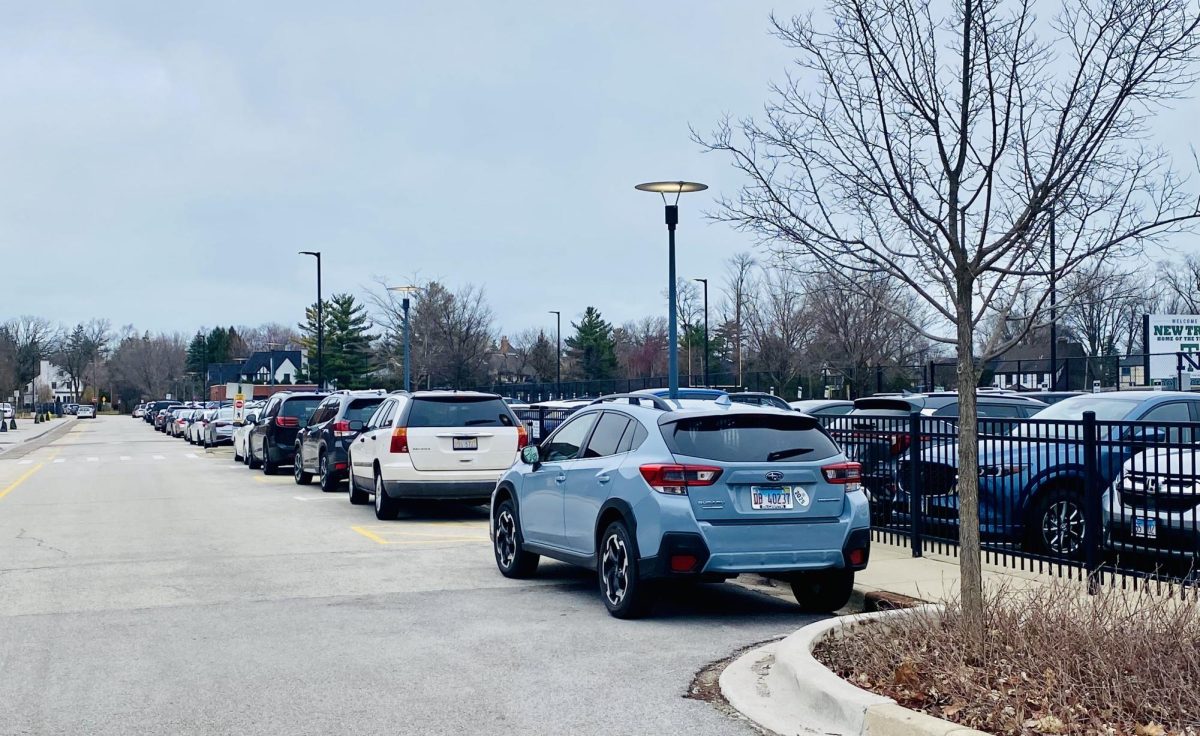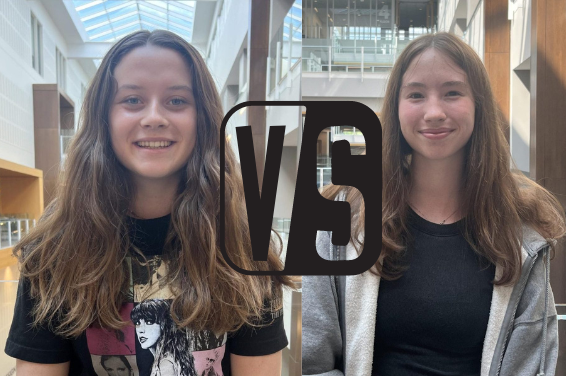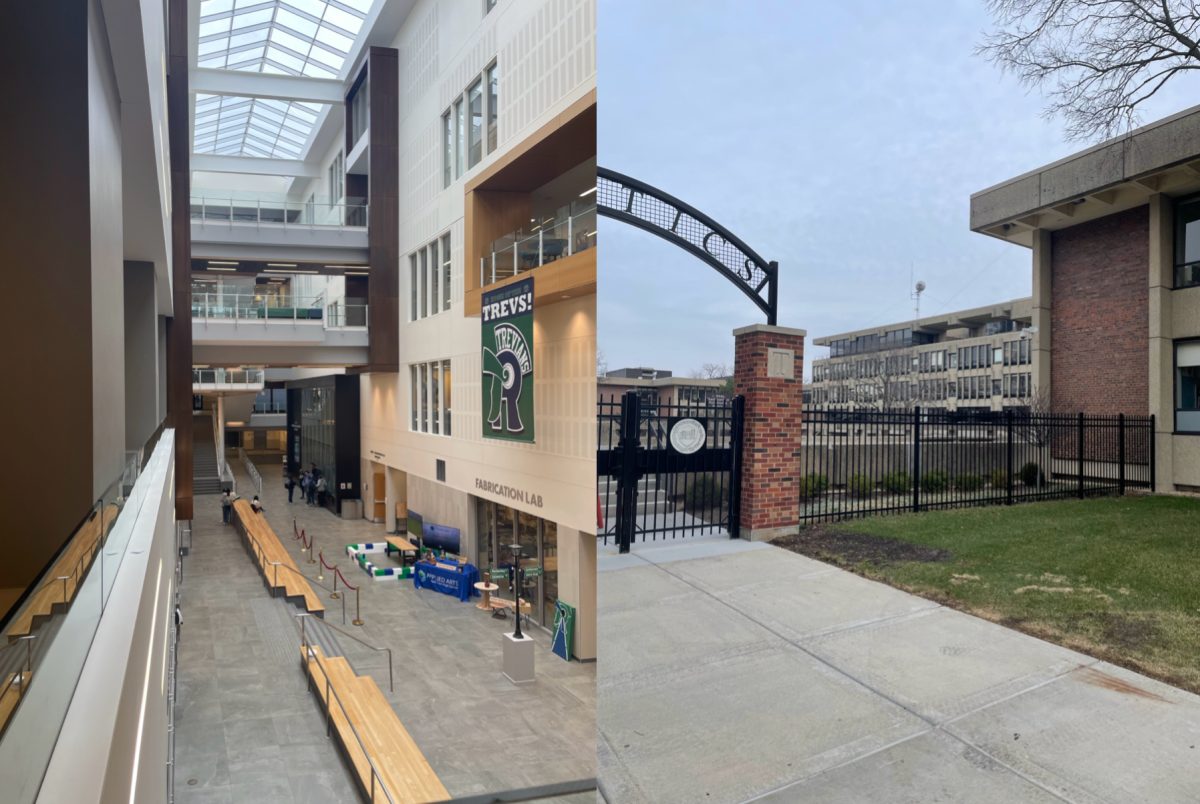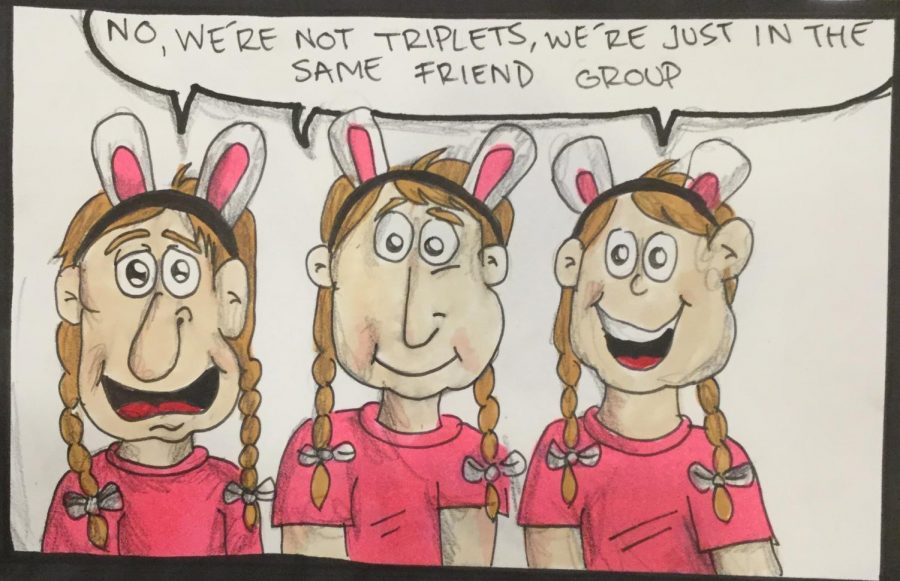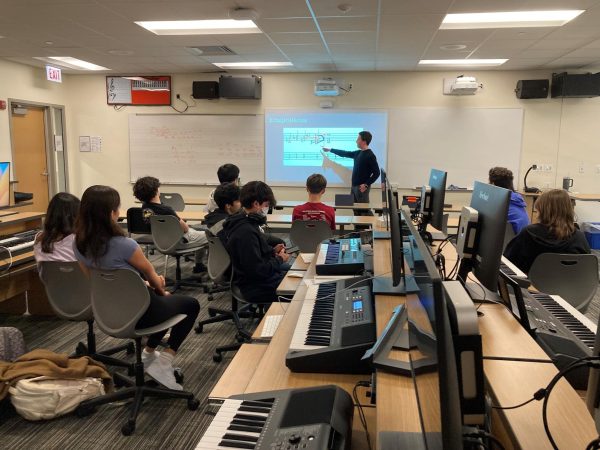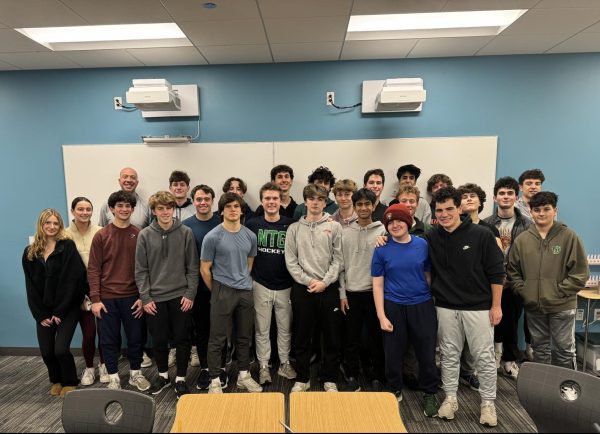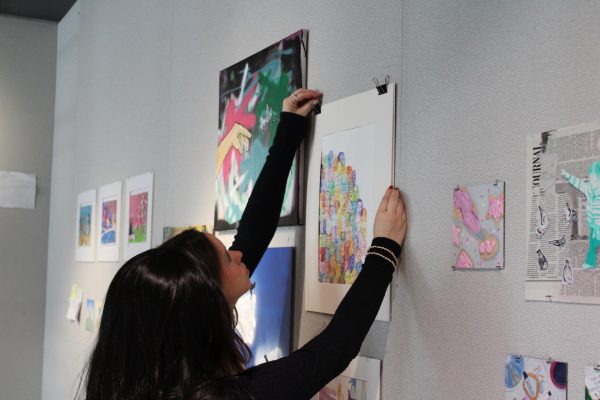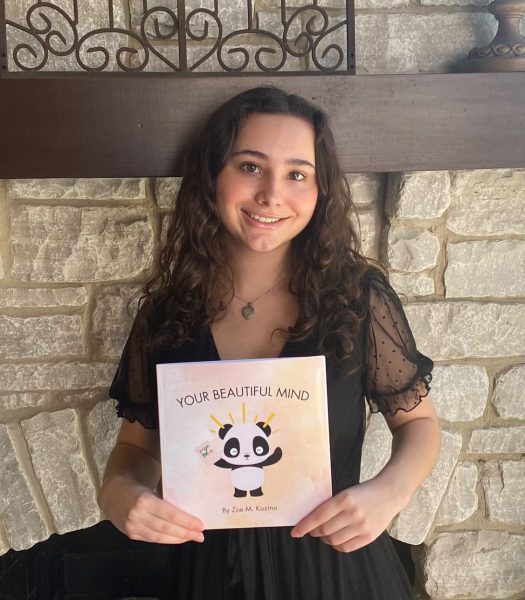Why is “friend group” exclusivity our norm?
Exclusive cliques have become an unhealthy part of the social culture
High school is an environment notoriously filled with social conflict and angst, one often characterized by a social pyramid of cliques with varying identities.
The song “Stick to the Status Quo” in “High School Musical” features a basketball player who professes his passion for baking and a brainiac who secretly loves to break dance, much to the horror and dismay of the student body.
While New Trier’s social environment can’t be as obviously defined by the cliché categories of jocks, stoners, and geeks, it indisputably relies on friend groups.
The problem with this doesn’t lie in the fact that New Trier has cliques. Rather, it’s in how obsessed people become with fitting into these friend groups and creating a culture of exclusivity.
Friend groups often provide the foundation for school dances or just for going out on the weekends. Distinctions between groups are made even more obvious by self-assigned groups names inspired by popular catchphrases or endearments.
“I’ve seen people who were not in friend groups try to get into specific ones as if [the groups] were sororities or fraternities. It can seem very hurtful if you don’t have a group that you are in or people know that you are a part of,” said senior Annie Halpin.
Senior Sarah Cortina attested to the exclusivity often associated with cliques. “I’ve heard stories of people being removed from friend groups, being pushed out of them, or not being ‘allowed’ into the group. It’s so weird that even though you hang out with a group of people, that doesn’t mean you’re actually in their group.”
Halpin noted that there are people who don’t prescribe to this culture of cliques. “I think you need to ‘fit in’ to be in a certain group and there are some groups where everyone looks and seems very similar. But I also think that if you don’t fit in with that, its probably because you don’t want to and then you wouldn’t want to be in a friend group of people who all ‘fit in’ at New Trier.”
Those who exist in a state of limbo, neither an explicit part of a friend group nor someone completely detached from one, are labeled as “floaters.”
“You can’t really just be a floater and have friends all over the place, everyone seems to like their groups clear on who’s in and who’s out so they know who’s cool enough for them to talk to,” said an anonymous student.
What’s most concerning about this social culture is the effect it can have on students who want to fit in and be a part of a friend group.
The anonymous student explained that her experience with the social culture has been “all over the place.”
“I was in multiple friend groups before I found real friends. In the ‘tiers of New Trier’ being at the top means your friends can bully you and if you mess up you’re out. I’ve received death threats and been harassed over parties and hookups. The social climate at New Trier actually made me leave school for a few months and I had to rehabilitate my mental health,” said an anonymous student.
The homogenized environment may also be a factor that contributes to the social tiers, and Halpin noticed that some cliques consist of certain ethnicities and socioeconomic statuses.
“I think New Trier is specifically hard to be at socially because of the lack of diversity. It’s really sad to see that the ‘top’ of the social hierarchy is all white and very similar looking. It’s hard because there’s such a specific image of what you should look like at New Trier,” said Halpin.
Senior Alex Kotaba said she thnks that, “New Trier is a bubble. From traveling a lot and seeing other people our age in different environments, I’ve really started to see just how exclusive New Trier is.”
Halpin’s perspective from the beginning of freshman year to now has changed to become less invested in friend groups or concerned with conforming to social statuses.
“I think that at the beginning of high school I was trying harder to be a part of [the culture of cliques]. Now that I don’t feel the need to participate in the social hierarchy of New Trier, I’m so much happier and I wish that I never cared about it.”
High school is an environment notoriously filled with social conflict and angst, one often characterized by a social pyramid of cliques with varying identities.
The song “Stick to the Status Quo” in “High School Musical” features a basketball player who professes his passion for baking and a brainiac who secretly loves to break dance, much to the horror and dismay of the student body.
While New Trier’s social environment can’t be as obviously defined by the cliché categories of jocks, stoners, and geeks, it indisputably relies on friend groups.
The problem with this doesn’t lie in the fact that New Trier has cliques. Rather, it’s in how obsessed people become with fitting into these friend groups and creating a culture of exclusivity.
Friend groups often provide the foundation for school dances or just for going out on the weekends. Distinctions between groups are made even more obvious by self-assigned groups names inspired by popular catchphrases or endearments.
“I’ve seen people who were not in friend groups try to get into specific ones as if [the groups] were sororities or fraternities. It can seem very hurtful if you don’t have a group that you are in or people know that you are a part of,” said senior Annie Halpin.
Senior Sarah Cortina attested to the exclusivity often associated with cliques. “I’ve heard stories of people being removed from friend groups, being pushed out of them, or not being ‘allowed’ into the group. It’s so weird that even though you hang out with a group of people, that doesn’t mean you’re actually in their group.”
Halpin noted that there are people who don’t prescribe to this culture of cliques. “I think you need to ‘fit in’ to be in a certain group and there are some groups where everyone looks and seems very similar. But I also think that if you don’t fit in with that, its probably because you don’t want to and then you wouldn’t want to be in a friend group of people who all ‘fit in’ at New Trier.”
Those who exist in a state of limbo, neither an explicit part of a friend group nor someone completely detached from one, are labeled as “floaters.”
“You can’t really just be a floater and have friends all over the place, everyone seems to like their groups clear on who’s in and who’s out so they know who’s cool enough for them to talk to,” said an anonymous student.
What’s most concerning about this social culture is the effect it can have on students who want to fit in and be a part of a friend group.
The anonymous student explained that her experience with the social culture has been “all over the place.”
“I was in multiple friend groups before I found real friends. In the ‘tiers of New Trier’ being at the top means your friends can bully you and if you mess up you’re out. I’ve received death threats and been harassed over parties and hookups. The social climate at New Trier actually made me leave school for a few months and I had to rehabilitate my mental health,” said an anonymous student.
The homogenized environment may also be a factor that contributes to the social tiers, and Halpin noticed that some cliques consist of certain ethnicities and socioeconomic statuses.
“I think New Trier is specifically hard to be at socially because of the lack of diversity. It’s really sad to see that the ‘top’ of the social hierarchy is all white and very similar looking. It’s hard because there’s such a specific image of what you should look like at New Trier,” said Halpin.
Senior Alex Kotaba said she thnks that, “New Trier is a bubble. From traveling a lot and seeing other people our age in different environments, I’ve really started to see just how exclusive New Trier is.”
Halpin’s perspective from the beginning of freshman year to now has changed to become less invested in friend groups or concerned with conforming to social statuses.
“I think that at the beginning of high school I was trying harder to be a part of [the culture of cliques]. Now that I don’t feel the need to participate in the social hierarchy of New Trier, I’m so much happier and I wish that I never cared about it.”


